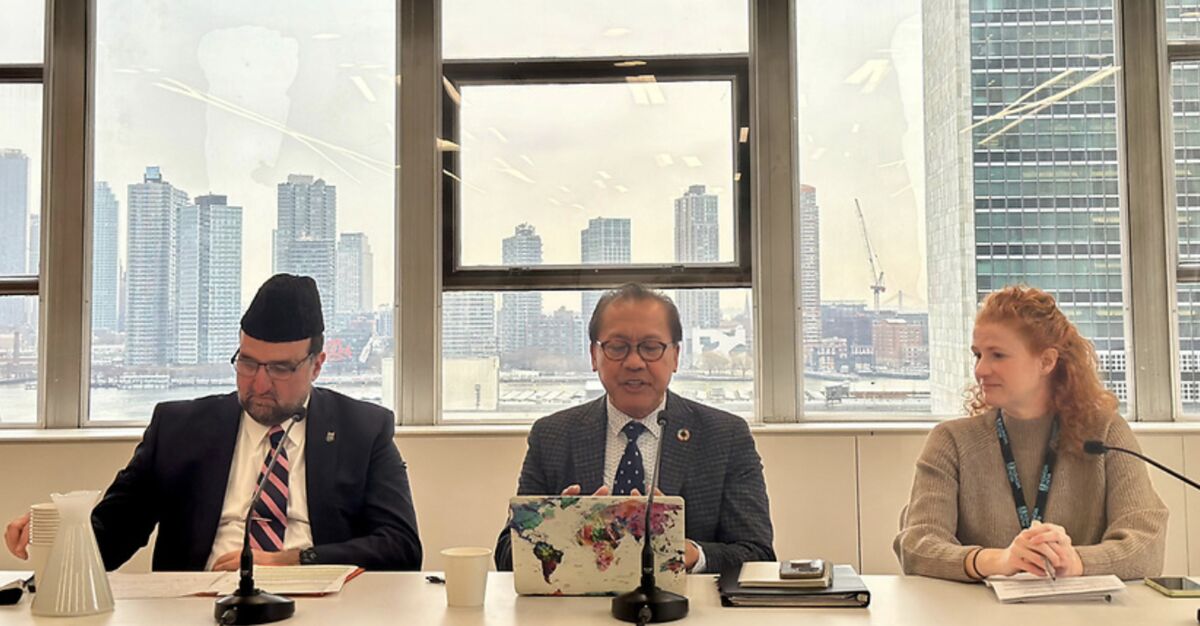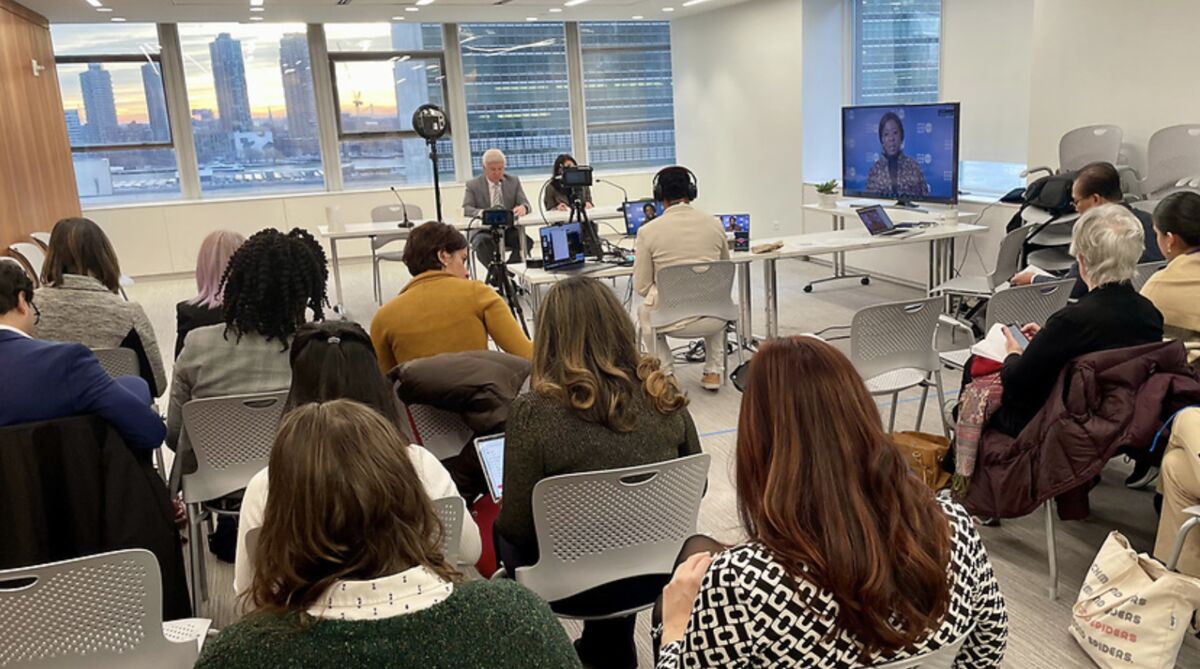A Journey Towards a Just, Peaceable, and Inclusive Future
A Decade of Collaboration and Impact: The Rev. Dr. Liberato (Levi) Bautista of GBCS and the 10th Anniversary Symposium on Religion and International Affairs, Human Rights and Dignity.

The Symposium on the Role of Religion and Faith-Based Organizations in International Affairs marked its 10th anniversary on January 23, 2024 at the Church Center for the United Nations in New York City.
The Rev. Dr. Liberato Bautista, in his role as the General Board of Church and Society (GBCS) representative at the United Nations, played a pivotal role in the symposium’s inception in 2015, alongside Dr. Ganoune Diop (Seventh-Day Adventist Church), Mr. Rudelmar Bueno de Faria (then with the World Council of Churches, and Dr. Azza Karam (then with the United Nations Development Program).
Over the past decade, GBCS has been at the forefront, contributing both personnel expertise and funding to turn the symposium into a reality.
The 10th anniversary served as a celebration of collaboration among faith-based actors, member-states and UN entities through the Inter-Agency Task Force on Religion and Development, an effort that has made the annual symposium alive and relevant in addressing many issues pertinent to religion and international affairs.

This annual symposium became a critical link between faith-based and multilateral partners. In his introductory remarks before moderating a panel session at the 10th iteration of the symposium, Rev. Bautista underscored the symposium’s non-negotiable commitment to recognize each other’s humanity and protect human rights. More than 700 participants worldwide, attending in person or online.
“The advocacy for life and peace is at the core of religious teachings—across many traditions and beliefs. That somehow going to war to save lives must be found objectionable. That somehow peace can be secured by launching wars must be found offensive to the idea of creating life in all its abundance so that all may live to the fullest and full of age.”
In a world more precarious and dangerous than ever, Bautista drew attention to ongoing conflicts in the world including Ukraine and the Middle East, emphasizing the importance of the symposium’s focus on “a just, peaceable, and inclusive future.”
The moderated session by Bautista delved into key insights aimed at realizing this overarching vision. An esteemed panel consisting of Mr. Anwar Khan, President of Islamic Relief USA; Ms. Emily Kenny from UN Women; Ms. Amani Aruri representing Karama Network; and Mr. Peter Prove, Director of International Affairs at the World Council of Churches, explored practical initiatives at diverse levels—local, national, regional, and global—showcasing possibilities for fostering a future characterized by justice, peace, and inclusivity. The session’s objective was to feed directly to the multilateral process leading up to the Summit of the Future, scheduled for September 18-19 2024 at the UN Headquarters in New York, where negotiations and production of the “Pact of the Future” are set to take place.
Today, the faith based co-organizers of the Symposium has increased, including ACT Alliance, General Board of Church and Society of The United Methodist Church, Islamic Relief, Religions for Peace, Seventh-Day Adventist Church, Soka Gakkai International, United Religions Initiative, and the World Council of Churches.